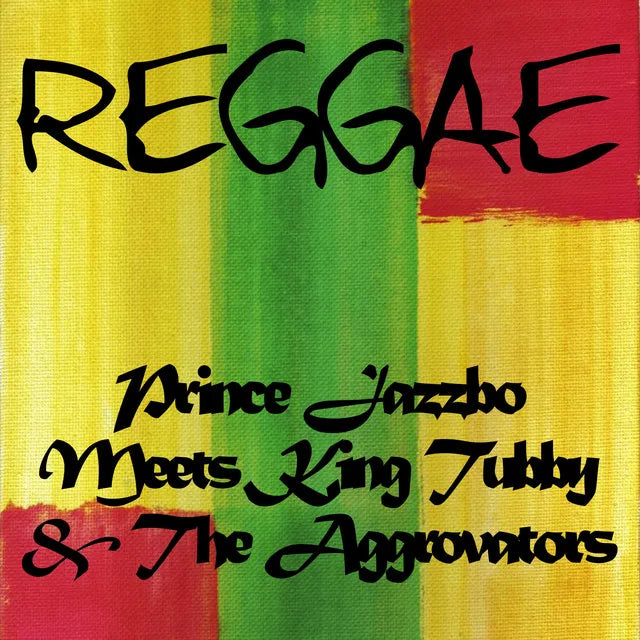Prince Jazzbo Biography
Who is Prince Jazzbo? A Brief Career Overview
Meet Prince Jazzbo, the vibrant voice and pulse of reggae music who has captivated audiences with his distinctive sound since the early 1970s. Born Linval Roy Carter on September 3, 1951, in Jamaica, Jazzbo is not just a deejay and producer; he is a cultural icon whose work spans across genres like dub, old school dancehall, reggae, rocksteady, and roots reggae. Despite not reaching the level of fame as some contemporaries, Jazzbo's charisma and unique storytelling through music have made a significant mark in the industry, particularly through his influential Ujama label.
Jazzbo's impact is illuminated by a series of groundbreaking achievements, including early classics recorded at the revered Studio One and a remarkable comeback in the 90s with the late-release album Choice Of Version. His connection to vinyl culture is profound, with collectors cherishing his releases that often feature eye-catching designs and memorable tunes. With a career that embodies the heart of Jamaican music heritage, there is so much more to explore about Prince Jazzbo's journey.
Prince Jazzbo's Early Life and Background
Born in the vibrant context of Clarendon Parish, Jamaica, Prince Jazzbo grew up in a musical environment steeped in rich traditions and cultural expression. His family's humble beginnings influenced his worldview, instilling the values of resilience and creativity from a young age. Surrounded by the sounds of reggae, Ska, and the emerging dancehall influences, Jazzbo was naturally drawn to music.
As a child, he experienced music early on, creating rhythms and melodies without formal training. His initial encounters with sound systems in Spanish Town sparked his creative ambitions, leading him to hone his craft as he made a name for himself on the local scene. These formative experiences catalyzed his future passion for vinyl records, shaping Jazzbo into the artist who would become synonymous with reggae storytelling.
The Musical Influences That Shaped Prince Jazzbo's Sound
Prince Jazzbo's sound is a melting pot of inspirations drawn from legendary figures in reggae and beyond. Influenced by the likes of U-Roy and Big Youth, his style effortlessly blends distinct vocal delivery with rich musical backing. The seamless integration of dub and rhythm within his tracks showcases how he incorporates various genres into his identity.
Some vinyl gems that inspired Jazzbo during his formative years include classic albums by Lee "Scratch" Perry and Bob Marley, whose innovative production styles deeply resonated with him. Jazzbo's appreciation for vinyl goes beyond collecting; it is woven into the fabric of his music, with many tracks inviting listeners to enjoy the warmth and depth that only analog can provide.
How Prince Jazzbo Entered the Music Industry
The journey into the music industry for Prince Jazzbo was nothing short of adventurous. His passion for music sparked a desire to perform, leading him to engage with numerous sound systems, including the notable Whip. In the early 70s, he took a significant step, recording with Coxsone Dodd's Studio One label, where his first hit, Crabwalking, paved the way for a long and fruitful career.
Although faced with challenges in producing his music on vinyl, Jazzbo remained determined. His creative spirit was evident as he began to weave his signature sound while collaborating with iconic figures in the industry. Breakthroughs came when his tracks gained traction, leading to independent releases, and establishing his own label, Ujama, which became a central hub for reggae artists, even amidst the changing landscape of music.
Prince Jazzbo's Breakthrough and Rise to Fame
Prince Jazzbo's climb to success was defined by several pivotal moments, notably his 1976 album Natty Passing Thru, which showcased his poetic lyrics and unique delivery. The vinyl release of this album was particularly significant, receiving a warm reception from fans and critics alike. The album featured iconic tracks that not only climbed the charts but also left a lasting impression on the reggae genre.
Jazzbo's ability to connect with audiences led him to perform at renowned venues and collaborate with other music legends. Beyond the accolades and recognition, his releases captivated collectors and earned him a dedicated following, ensuring his place in history as a prominent reggae figure.
How Personal Life Shaped Prince Jazzbo's Music
Prince Jazzbo's artistry is deeply intertwined with his personal experiences. The relationships and struggles he encountered shaped his lyrical content, reflecting the universality of human emotions. His songs often resonate with themes of resilience and hope, inspired by figures close to him who supported and uplifted him throughout his journey.
Jazzbo was also known for his philanthropic work, using his music as a platform for social activism. He tackled various causes through his lyrics, urging listeners to reflect on societal issues. Even in the face of challenges and controversies, he found strength in creativity, allowing his personal story to enrich his music, and reinforcing the bond between his life and artistry.







































